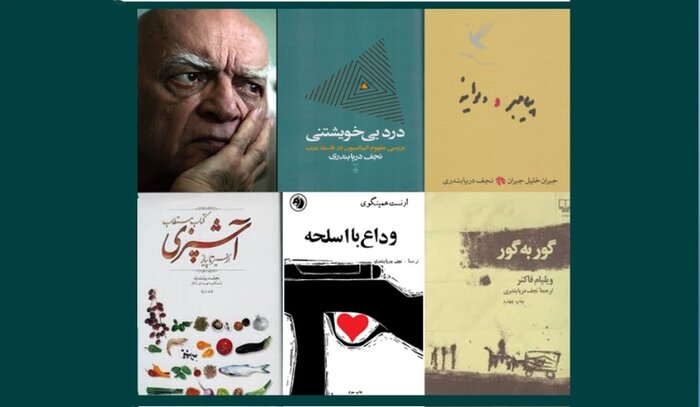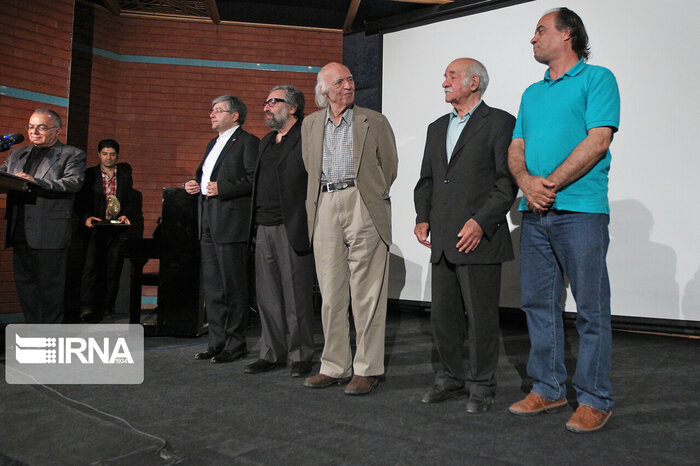A self-motivated translator and writer, Daryabandari (1929-2020) never attended college – he even didn’t finish high school – but became an eternal star in the firmament of Persian Literature and translation.

His works include some of the best translations ever into Persian. He left a great heritage drawing acclamation of the intelligentsia.
Regarding his getting interested in translation, he once said that when in prison after the US-led coup against the Iranian democratically-elected Prime Minister Mohammad-Mosaddegh (1953), he got his hands on a Persian translation of Miguel de Cervantes’ Don Quixote, by Mohammad Qazi, a renowned translator. He thought it was an unrivaled work that was going to stay with Persian forever.
Hailing Qazi’s work, Daryabandari said that although it was translated from French, not the original Spanish and that the French are sloppy translators, he realized that the translation sounds like an original piece of writing and no one will be able to outdo that.
Probably Daryabandari’s most distinguished characteristic was his insistence to keep the translations as close as possible to the original text, which is clearly seen in his translation of Ernest Hemingway’s The Old Man and the Sea. Apart from the book, he wrote a 90-page preface to the book that is a masterpiece itself. It provides the reader with a deep insight into Hemingway Nobel Prize-winning novel.
He translated Hemingway’s masterpiece into Persian about 65 years ago just a few years after it was published. Not only does the translation reflect ingenious techniques and flare for translation, it also shines with precision of translation, which has always been in the spotlight for the professors and students of the field. The book was published over and over again in the more than 60 years.
Daryabandari once said that translation is not a science; it is an action to be learned through regular or irregular practice – through trial and error… The translator who believes in this idea will directly fit himself into the writer’s shoes to write exactly like him.
He believed a good translation is one that the original author would write if he or she spoke the same language as the translator.
His canon includes Hemingway’s The Snows of Kilimanjaro, The Old Man and the Sea, and A Farewell to Arms; Mark Twain’s Huckleberry Finn and The Mysterious Stranger; William Faulkner’s As I lay Dying; E. L. Doctorow’s Ragtime and Billy Bathgate; Herbert E. Read’s The Meaning of Art; Kazuo Ishiguro’s The Remains of the Day; Sophocles’ Antigone; Will Cuppy’s The Decline and Fall of Practically Everybody; Bertrand Russel’s Power and A History of Western Philosophy; Samuel Beckett’s Waiting for Godot; and Federico Garcia’s The House of Bernarda Alba.
He translated The Decline and Fall of Practically Everybody, a comedy, so skillfully that many thought he was the authors and many others doubted if he had written it single-handedly or with the help of Ahmad Shamloo, his friend and a well-known translator and author.
He also wrote a precious book in cooking, The Great Book of Cooking: From Onion to Garlic. “From onion to garlic” is word-for-word translation of an everyday expression in Persian and the exact equivalent for the English idiom “from a to Z.” Many see it as an aberration, but other see it just as another masterpiece. He wrote the book in eight years with the help of his wife, Fahima Rastkar. The book was printed 30 times. It introduces Iranian, Chinese, Indian, Turkish, Arabian, Spanish, Japanese, Italian, Roman, French and Russian cuisines.
He received the Thornton Wilder Prize for his translation of American works of literature, and the Cultural Heritage, Handicrafts, and Tourism Organization of Iran named him as “a living human treasure".
After losing his wife and having a brain stroke, Daryabandari stopped working. He was so good a mixer that many Iranian writers and poets were among his close friends.
Daryabandari passed away at the age of 91 on May 4, 2020.
9417**1416
Follow us on Twitter @IrnaEnglish





Your Comment